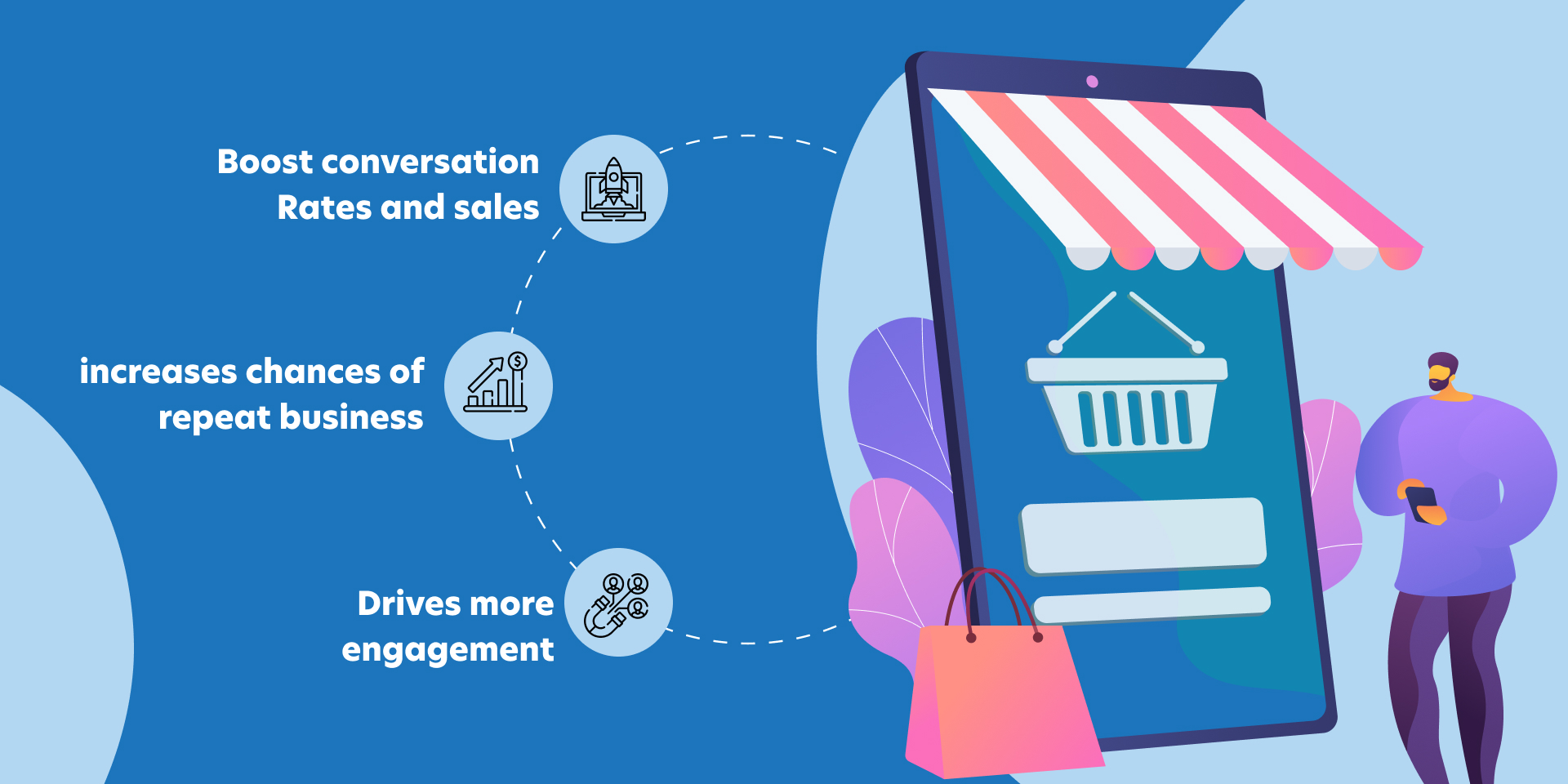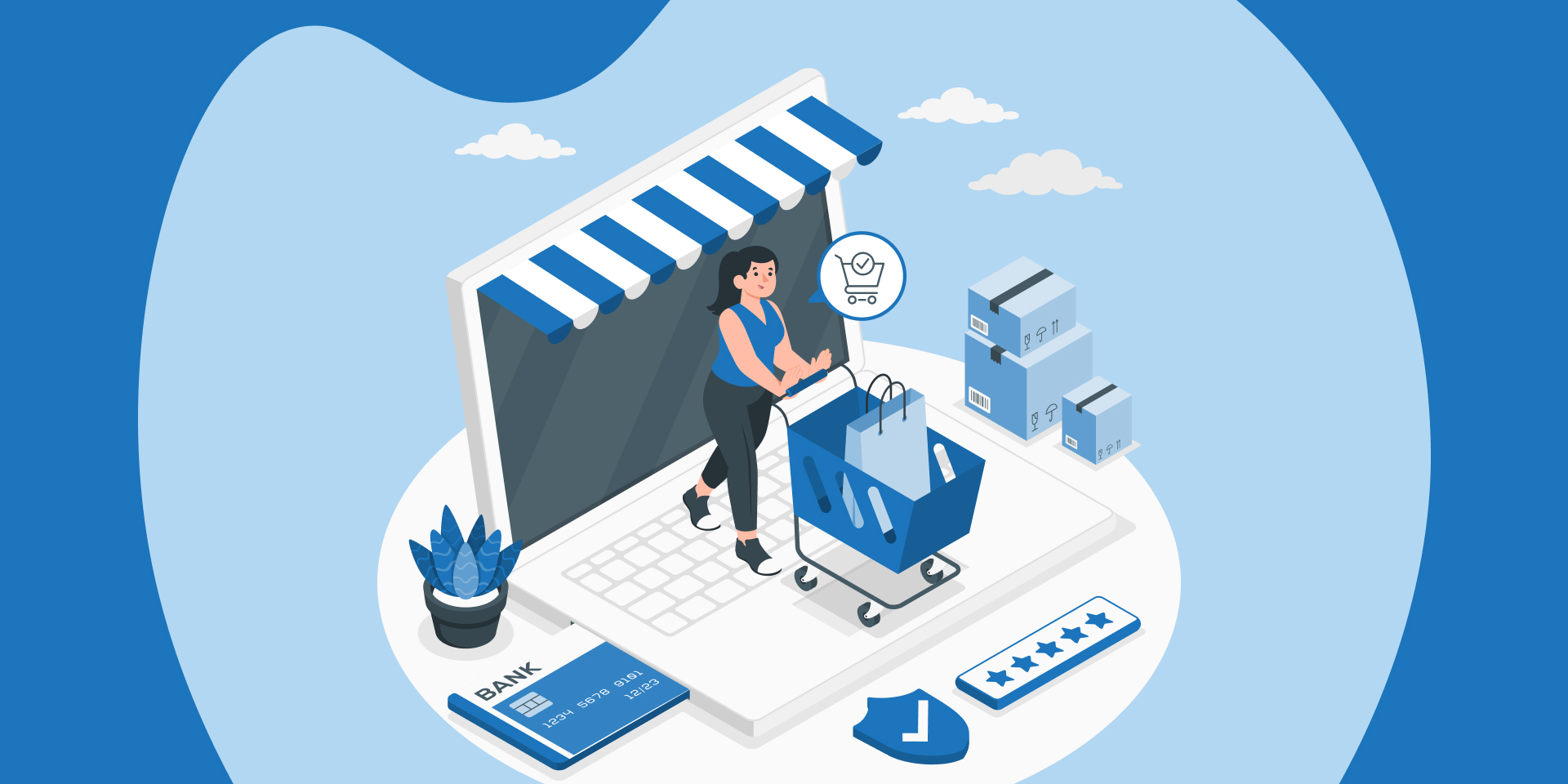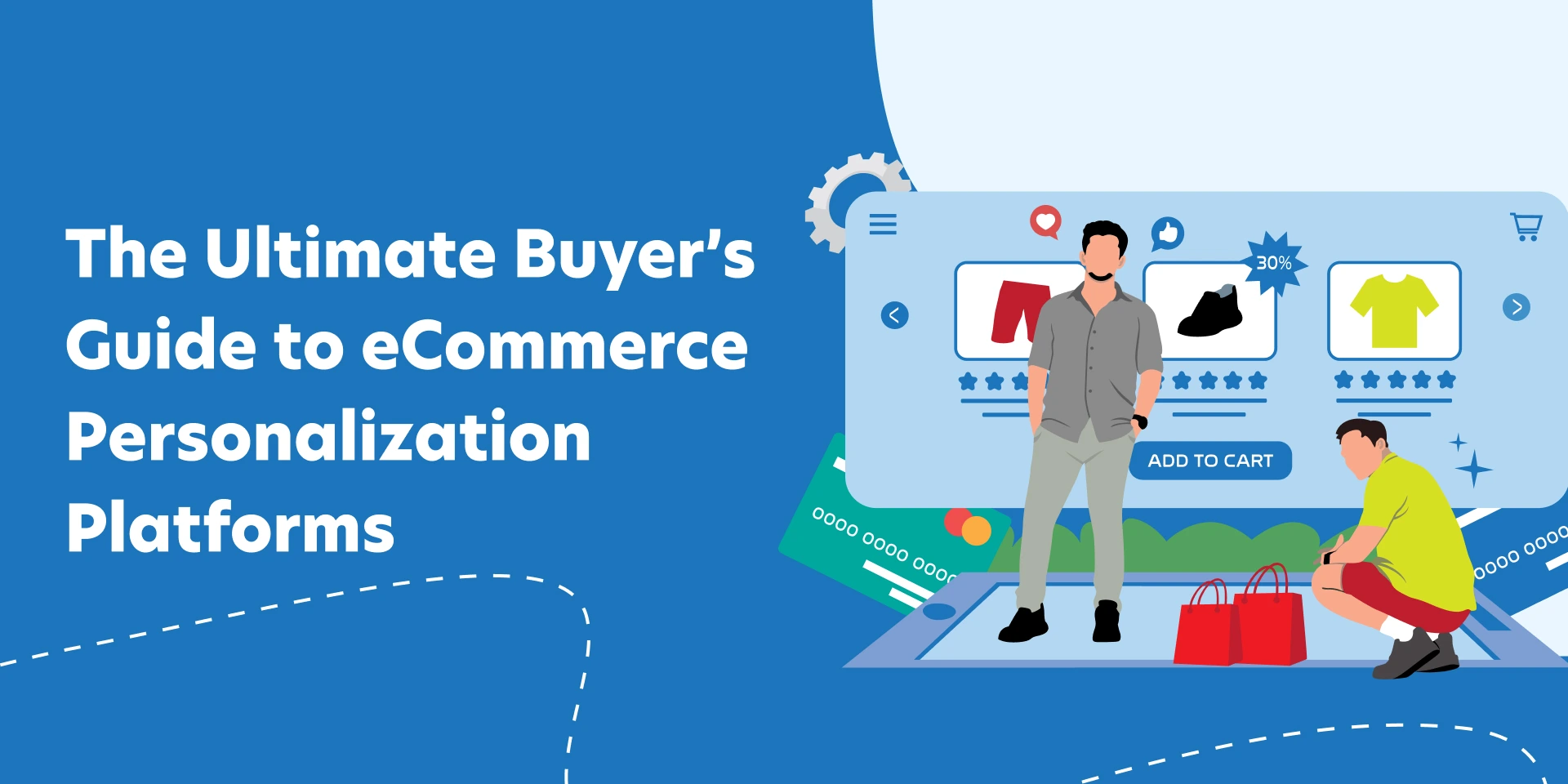Delivering a personalized shopping experience isn’t just a bonus—it’s a necessity. Research shows that 80% of customers are more likely to purchase from brands that offer personalized experiences. Predictive and personalized search are at the core of this transformation, allowing businesses to engage shoppers, boost conversions, and drive loyalty. But how do you choose
the best platform to make this happen? This guide covers everything you need to know, from key features to top platforms in the market.
Why Personalization Matters in eCommerce
 Personalized shopping experiences go beyond addressing customers by name.
They use data to predict shopper behavior, provide relevant product recommendations, and streamline the journey from browsing to checkout. According to McKinsey,
personalization can boost revenue by 5-15% and marketing ROI by 10-30%. This translates to higher sales, increased loyalty, and better user retention for eCommerce businesses.
Personalized shopping experiences go beyond addressing customers by name.
They use data to predict shopper behavior, provide relevant product recommendations, and streamline the journey from browsing to checkout. According to McKinsey,
personalization can boost revenue by 5-15% and marketing ROI by 10-30%. This translates to higher sales, increased loyalty, and better user retention for eCommerce businesses.
Key Features to Look for in an eCommerce Personalization Platform
These features are critical to ensuring seamless functionality and optimal user experience when evaluating eCommerce personalization platforms.1. Predictive Search
Predictive search enhances the user experience by suggesting relevant search results as shoppers type. This speeds up the search process and increases the likelihood of conversion. Look for platforms that support text, voice, and visual predictive search.2. Personalized Recommendations
The ability to suggest products based on customer behavior, purchase history, or browsing patterns is essential. Platforms should use AI to tailor recommendations to individual preferences.3. Dynamic Filters
Intuitive filters allow customers to refine their search results based on price, category, ratings, or availability. Look for platforms that offer smart filters that adapt based on real-time inventory and user preferences.4. Merchandising Tools
Visual merchandising capabilities, like drag-and-drop product arrangement or spotlighting bestsellers, allow businesses to showcase their products effectively.5. AI-Powered Analytics
Actionable insights from user data can help businesses optimize their strategies. Platforms should offer detailed analytics for understanding user behavior, search trends, and conversion rates.6. No-Code Customization
Not every business has a dedicated development team. Platforms that offer no-code or low-code customization are ideal for seamless deployment and updates.7. Scalability
As your business grows, your platform should be able to handle increased traffic, product catalogs, and user queries without performance dips.8. Integration Capabilities
The platform should integrate seamlessly with your existing eCommerce tools, including CRM, ERP, and marketing automation software.9. Mobile Optimization
According to Gartner, with 73% of eCommerce traffic coming from mobile devices, platforms must be optimized for mobile to ensure a consistent user experience.10. Advanced Security
Since personalization involves collecting user data, the platform must comply with privacy regulations like GDPR or CCPA and have robust data encryption measures.Top eCommerce Personalization Platforms to Consider

1. ConversionBox
ConversionBox is the ultimate tool for eCommerce businesses, combining predictive search, smart product filters, and AI-powered merchandising.- Key Features: Dynamic product recommendations, Core Web Vitals optimization, and advanced filtering options.
- Why Choose It: ConversionBox delivers a seamless shopping experience while boosting conversions. Its focus on personalization and speed optimization features makes it ideal for scaling businesses.
2. Bloomreach
Bloomreach leverages AI to deliver hyper-personalized experiences across channels.- Key Features: Customer data platform (CDP), AI-driven recommendations, and advanced search functionalities.
- Why Choose It: With its powerful analytics and customization options, Bloomreach is perfect for businesses looking to connect deeply with their customers.
3. Algolia
Known for its blazing-fast search capabilities, Algolia integrates personalization into its robust platform.- Key Features: Predictive search, faceted navigation, and real-time analytics.
- Why Choose It: Algolia’s developer-friendly APIs make it a top choice for custom eCommerce setups.
4. Searchanise
Searchanise offers cost-effective, user-friendly personalization tools tailored for small to medium-sized businesses.- Key Features: Instant search, advanced product filters, and merchandising tools.
- Why Choose It: It’s a plug-and-play solution with excellent customer support, ideal for stores with smaller budgets.
5. Fast Simon
Fast Simon blends AI and machine learning to optimize search, merchandising, and recommendations.- Key Features: Visual search, price optimization, and personalized email campaigns.
- Why Choose It: It’s an all-in-one platform for boosting average order value and engagement.
6. Nosto
Nosto specializes in delivering personalized shopping experiences powered by AI.- Key Features: Dynamic product recommendations, content personalization, and behavioral analytics.
- Why Choose It: Perfect for businesses that prioritize storytelling and visual commerce.
7. Dynamic Yield
Dynamic Yield focuses on creating cohesive omnichannel experiences.- Key Features: A/B testing, AI-driven product recommendations, and dynamic content.
- Why Choose It: Its versatility and advanced testing capabilities are great for experimentation.
8. Kibo Commerce
Kibo’s personalization engine drives exceptional customer experiences across digital and physical touchpoints.- Key Features: AI-driven personalization, inventory optimization, and dynamic pricing.
- Why Choose It: Ideal for omnichannel retailers seeking integrated solutions.
Why ConversionBox Stands Out
ConversionBox is designed to revolutionize your eCommerce game. Whether it’s predictive search that wows customers or smart merchandising that maximizes exposure, this platform delivers measurable results. Its dual focus on personalization and performance makes it a standout choice for businesses aiming to excel in today’s competitive market.How to Choose the Right Platform
- Define Your Goals: Are you looking to improve search capabilities, boost conversions, or enhance user engagement? Clarify your objectives before shortlisting platforms.
- Assess Your Budget: While some platforms offer affordable solutions, others cater to enterprise-level businesses. Pick one that aligns with your budget and ROI expectations.
- Test Usability: Ensure the platform is user-friendly for both your team and customers. Free trials or demos can help you assess usability.
- Prioritize Scalability Choose a solution that grows with your business to avoid the hassle of migrating platforms later.
Conclusion: Ready to Personalize?
Investing in a personalization platform isn’t just about improving user experience; it’s about building trust, driving sales, and creating long-term growth. Choose wisely, and watch your eCommerce store thrive!Questions to Ask Before Buying:
- 1. Does the platform support my current eCommerce platform?
- 2. Can it scale as my business grows?
- 3. Are analytics and insights included to track performance?
- 4. How easy is it to implement and use?











